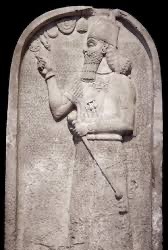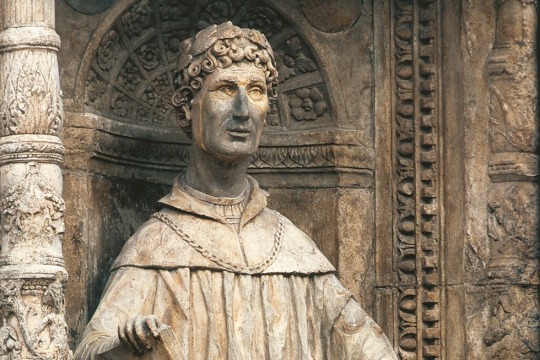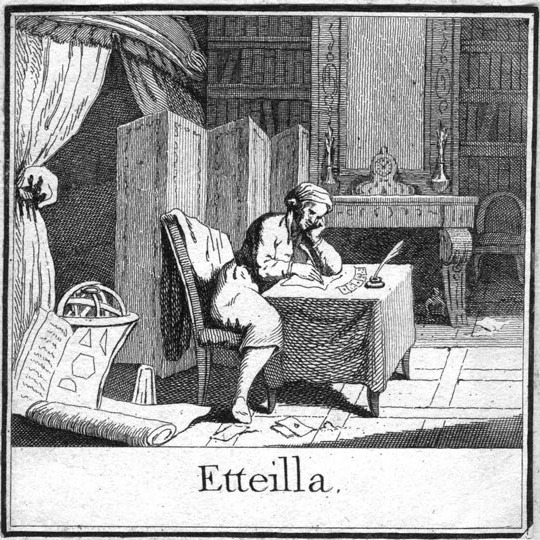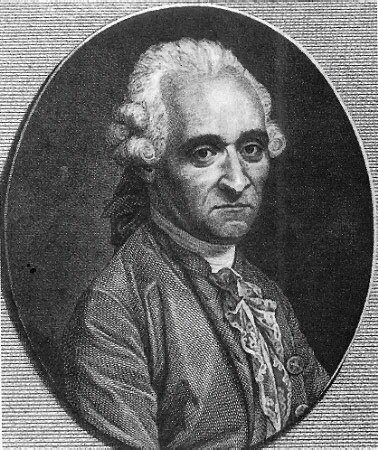“Those who cannot remember the past are condemned to repeat it.” – George Santayana
Don't wanna be here? Send us removal request.
Text
The Supernatural and Paranormal world in history
(I wrote this back in my junior year of highschool for a research essay but decided I wanted to share it with others because some of the things on here are just so fascinating to me I didn’t want to keep it to myself. The writing here is definitely all over the place)
The supernatural world has had a chokehold on cultures and civilizations around the world since history even began being recorded, and even today it’s still an almost everyday thing for plenty of people and countries.
The idea of the supernatural dates back as far as ancient Babylon when the Babylonians recorded how to dispel a ghost to the underworld on a stone tablet. The tablet was made in ancient Babylon sometime around 1500 B.C.E. At the time it was the earliest known depiction of a ghost. It is extremely difficult to see the writing and it must be viewed under specific light. It is small and half of the tablet is missing, but it still gives specific instructions on how to remove ghosts. The directions say to have an exorcist make figurines of a man and woman, prepare two vessels of beer; next at sunrise speak ritual words calling on the Mesopotamian god Shamash, who was the god of the sun and was responsible for guiding the undead to the underworld. One of the texts has a warning to not look behind you; whether this is directed at the ghost going to the underworld or the exorcist is unknown. Throughout history people have believed that they encountered ghosts in their everyday life; many scholars even have writings that give instructions on how to exercise these ghosts. Mesopotmians had rituals during funerals to specifically ensure the dead would not rise as ghosts, but instead of being viewed with fear, the Mesopotamians viewed them with sympathy as their eternal slumber had been taken away from them (Gershon, n.pag).
Ghosts were less known during ancient Rome; and more feared than honored; unlike in the Babylonian culture one of the first ghost stories came from Ancient Rome. The first ghost story was written by Gaius Plinius Caecilius Secundus, better known as Pliny the Younger. He was a scholar and magistrate in Ancient Rome and wrote hundreds, if not thousands, of letters in his time. One of the most popular may be his letter to Roman Senator Lucius Licinius Sura, where Pliny asks if he truly believes in the specters, which reveals this conversation may have been going on for some time. Pliny goes on to speak about the story of a haunted house in Athens where the inhabitants reported hearing noises in the night; this slowly drove them to madness; and eventually death. Once the home was empty Athendoros the Philosopher inquired about it, he was intrigued by the story of the previous owners and decided to see if these stories held any truth. He said the ghost had appeared for him, a specter of a man with a long white beard and disheveled hair. The ghost led him outside before disappearing on a specific spot. Athendoros had the magisterium dig the spot up the next day where they discovered a long-deceased body; once the body of the man received a public funeral, the home was no longer haunted (Secundus n.pag).
Pliny the younger seemed to be worried about the ghost according to his letter, and even wrote to a politician about these concerns; Pliny states, “I am extremely desirous therefore to know your sentiments concerning specters, whether you believe they exist and have their proper shapes and a measure of divinity, or are only the false impressions of a terrified imagination?” (Secundus n.pag).
In the 1700s the paranormal was part of everyday life, so much that a newspaper had daily tales about paranormal stories in neighborhoods. People would report strange events that took place in their homes and it would be posted. Most reported stories said ghosts were horrible and loud creatures, but not violent. Newspapers devoted to reporting unusual behavior were a hit with communities in the 17th century (Sangha n.pag).
People had begun to believe some of the living could be directly connected to the supernatural world; they called themselves psychics and clairvoyants. The 1700s were the rise of this belief, mainly in England and Egypt with women. Many used playing cards or tea for readings to avoid suspicion as witches. Travelers from Egypt had become well known for their spiritual abilities and would receive payment to tell fortunes. The French scholar and writer Antoine Court De Gebelin was one of the first to use tarot for the occult; he claimed these cards originated from Egypt and were brought to England by travelers (Matthews n.pag).
The second most prominent figure in the occult was Etteila, the grandfather of the occult tarot. Very little is known about his life before beginning to work with the tarot, but he was born in 1738 to Maître Rôtisseur, a caterer, and his mother, whose name is unknown, a seed merchant. Those who began practicing the occult often believed that what they were doing was with the help of spirits, again tying the 18th century with the paranormal world (Matthews n.pag).
The paranormal has always been a part of the world, while people do not truly know if it is real or not. The cultures of the past may have been heavily influenced by the ideas of ghosts and spirits. Many modern historians speculate that the reason the civilizations centuries ago relied so heavily on the idea of the supernatural was to give them a possible answer to what happens after death. In history humans did believe ghosts were a part of life, and that they were an important part of life and how the world functioned.
Personal Position
The world has always been filled with intricate and detailed stories revolving around the supernatural and while it is unlikely that monsters or other supernatural creatures live in the world the theories of it are interesting and a large part of the past. The way entire cultures can form around a simple thought of nonexistent creatures is fascinating. Knowing about the history of past civilizations is important; and since the supernatural was so deeply rooted in their culture it should be just as important. The supernatural has had a strong hold on cultures around the world since ancient times.
Everyone wonders if the supernatural exists if monsters roam the earth hidden from the naked eye. Most cultures were created with the idea that the supernatural wanted to harm them, but today modern society calls these old ideas myths or folktales. Has the supernatural world existed this entire time or are myths created to cause fear among civilizations as a way of controlling them?
The supernatural was first created as a way for early civilizations to understand what they believed to be unexplainable events, such as their crops suddenly dying must have been the cause of a witch or missing money must be a demon.
The use of the supernatural in culture has varying motives and can neither be proven nor disproven. Psychics believe they have the power to contact the other side; while there is no scientific proof of this one woman, Dorothy Allison has assisted in over 400 police cases and is still being contacted by police for assistance, “In her voluntary detecting career, Allison worked on more than 5,000 cases for law enforcement agencies around the globe and was credited by many with helping to solve more than a dozen murders and find at least 50 missing children.” (Oliver, n.pag)
In early history the invisible world served a deep and important cultural purpose; they had originally used it to show what was unacceptable in their societies, eventually, these monsters created from simple ideas turned into people's darkest fears, “Many Tudor and Stuart people – from the most educated elites to ordinary working men and women – believed that alongside their own, visible world was what has been termed an ‘invisible world’. These two worlds were deeply intertwined: from the malevolent powers of witches, to the demonstration of divine will in monsters and other ‘wonders of nature’, they thought that the supernatural shaped the natural world“ (Cambridge 1).
At first, the idea of monsters may have been helpful in their eyes; it was a way to easily represent unwanted traits in communities, at some point it got out of hand and their beliefs turned into monsters, “In the Early Modern Period monsters played an important role in European society, they were created by communities in order to serve cultural purposes. One of these purposes was that monsters outlined characteristics that were culturally unacceptable, and through the image of monsters were used to enforce these beliefs” (Smith 1).
What was once a cultural idea turned into fear that lasted generations; every small event that may have been believed to be unexplainable turned into a monster out to get them and their family. They were no longer in control of these fears; instead these monsters controlled and shaped their culture, “Whatever the community would fear the most, monsters would spawn from these anxieties. Witches would attack crops, murder livestock, and create curses, all acts that European communities would fear, another example of how fear began to construct monsters” (Smith 1).
In early history the idea of the supernatural served a cultural purpose; these supernatural beings often had characteristics that were unacceptable to the culture. They used these creatures to reinforce their beliefs. These creatures were created to specifically hold monstrous traits, for example, one monster may be gluttonous or violent. The problem these ideas brought with them was severe anxiety amongst communities; most of the farmers believed witches may come and destroy their crops randomly or a shop owner thought a demon would steal their earnings. Communities found a way to make their fears a physical threat to their well beings; they wanted what they were as a rational answer for irrational events. In early history people feared what they could not understand or recognize; for example when discoveries of animals were made people thought they must be beasts of the unnatural world if they did not understand it, it must be monstrous or dangerous.
The supernatural has been an important part of culture since some of our earliest recorded histories. Understanding the importance of the supernatural in history is something that more people should see. Early civilizations used monsters to form what they did not want in their culture; or as an excuse for negative parts of their life. Today the supernatural has become fictional to most people, or are folktales.
While the supernatural is most evident in early history, it still has its involvement in cultures and daily life today. Some still believe that the paranormal and supernatural world is part of life, such as certain people believing that they can contact the other side or cultures believing in supernatural creatures like the chupacabra or skinwalker.
Psychics in the modern day are often used in many police investigations, especially homicides. The first recorded assistance of a psychic in police investigations was in 1845, though many believe they were helping before that, unfortunately, this recorded case has been lost. They have been shown to give useful information that has even been proven true later in the investigations. Many psychics have become trusted members of many police departments.
In history, civilizations used the supernatural to either cause or ease fear in their daily lives. They used these monsters to specifically form their world how they saw fit, if someone had the traits of these monsters they were targeted. For a widow not remarrying was seen as a witch. They came to truly believe the supernatural existed in their world and that it was working against them.
There has been no scientific evidence of the supernatural or paranormal world hidden in our own. Many people have tried to falsify evidence and there have been competitions offering thousands of dollars for the science behind the supernatural to be proven but no one has truly discovered it, not with physical evidence that can show the paranormal and supernatural are part of our world.
The supernatural is not a natural everyday phenomenon; it was created for a specific purpose. Only after decades of being used to show what is culturally unacceptable did civilizations begin to convince themselves these monsters were real and they are what is causing the problems in life, “In the Early Modern Period monsters played an important role in European society, they were created by communities in order to serve cultural purposes” (Smith 1).
The supernatural was at first only a thought someone had to use to help form civilizations; it then turned into something much more over time. The citizens of the old world turned these thoughts into what they believed to be real physical creatures through fear, they had no way of knowing if they were real or not, and they believed what they were told by chiefs, kings, and lords. They let their fear control them and their entire lives.
The paranormal and supernatural world has been tied with culture for over a thousand years; while they may not be real it is important to many parts of the world. People at the beginning of recorded history believed this unseen world was something they could not live without, and the world could not function without. After a few hundred years the paranormal was beginning to be more unnatural rather than natural and important; it was purely fictional now. The idea of the paranormal and supernatural in the world changed multiple times across the world throughout time, many cultures stopped believing in it and many had it involved in daily life and religion. The supernatural is a heavily important part of this world’s history; and many times influenced the past. The supernatural may continue to affect the future of everyone.
Works Cited
Gershon, Livia. “3,500-Year-Old Babylonian Tablet May Contain Earliest Known Depiction of a
Ghost.” Smithsonian Magazine, 22 October 2021. Accessed 6 December 2022.
Matthews, Mimi. “Nineteenth century fortune-telling: From the drawing room to the courtroom.”
victorianweb, 17 February 2017. Accessed 6 December 2022.
Sangha, Laura. ““Newspapers” devoted to reporting spooky behavior were a hit with
communities in the 17th century” University of Exeter, 1 November 2017. Accessed 6
December 2022.
Secundus, Gaius. “Book Seven, Letter 27”. VROMA, n.d. Accessed 6 December 2022.
Smith, Lisa. ‘About - Supernatural and Natural Worlds.” 26 May 2020. Accessed 6 December.
“The Supernatural in Tudor and Stuart Britain”. 8 July 2019. Accessed 6 December 2022.
Violette, Stephanie. “Cultural Belief in the Supernatural from 500 to 1500: Change over Time,
Significance, and Dispersion of Ideas from Augustine to Shakespeare.” 17 April 2017.
Accessed 6 December 2022.
Mesopotamia god of the sun, Shamash

Pliny the younger

Etteilla (Jean-Baptiste Alliette)

Antoine Court De Gebelin

-while I do as much research as I can on each topic I write about, I can not promise it is 100% historically accurate. Please do not use my writing as research or an educational source. My personal opinion is also occasionally added to my writing as it’s a personal blog. Thank you for reading <3
4 notes
·
View notes